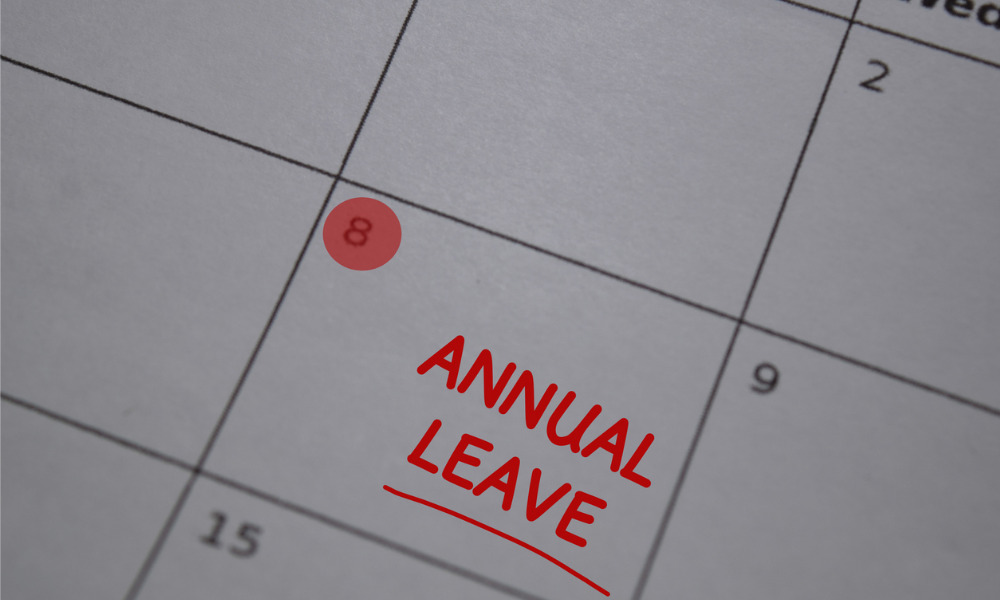
The pandemic wreaked havoc on our work-life balance

More than one in five workers have not used their annual leave in 2021, according to a new report, with the most common reason identified as the organisation's shortage on staff.
The latest "Personal and Work-Life Balance 2021" report from Ireland's Central Statistics Office (CSO) was carried out during the third quarter of 2021.
Maureen Delamere, Statistician, said this was a period when "varying levels of COVID-19 in the community, with related restrictions, which would likely have impacted on annual leave, sick leave and other forms of leave from work."
Delamere said that for the survey, they asked the respondents questions regarding their leave and flexibility in doing so over the past 12 months before the interview.
"In 2021, one in five employees did not take any annual leave over the previous 12 months," the statistician revealed. "Full-time workers (92%) in larger organisations were more likely to take annual leave than their part-time equivalents (88%)."
"One in fourteen (7%) employees had their leave request refused, with the most common type of leave refused being annual leave (91%)," Delamere added.
According to the study, staff shortage was the most common barrier for employees when taking their leave.
However, one in eight (13%) employees with children said they had to keep their leave for school holidays, while one in fourteen (7%) needed to keep theirs in case their children got sick, added the report.
Read more: Top HR leader calls for paid leave amid crisis
"More than one in eight (13%) said that taking unpaid leave was harmful to their career. This was especially so for workers with no children – 16% compared with 9% for workers with children," it also revealed.
Part-time workers in companies with over 100 people or more were "twice as likely" to face barriers when taking an unpaid leave.
One way to maintain a work-life balance for employees is to request for flexible working hours. This way, employees can leave the usual 9-to-5 working arrangements and have time under their control.
However, only one in six (17%) of employees availed flexible hours over the past 12 months.
"Of workers with children who had worked flexible hours, over one third (35%) availed of flexible hours for almost all of the previous four weeks, compared with just 14% of workers with no children," said Delamere.
The statistician added that majority of employees were well-aware of their entitlements when it comes to breaks. However, there was less awareness on the entitlement to have daily rest periods (76% awareness), according to the report.
The CSO is scheduled to publish two more publications "Personal and Work-Life Balance Survey - Job Satisfaction, Well-being and Employment Barriers" on April 19, and the "Personal and Work-Life Balance Survey - Remote Working" on April 26.